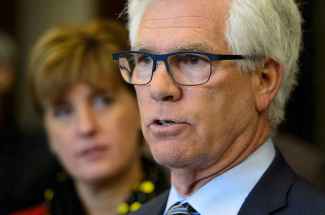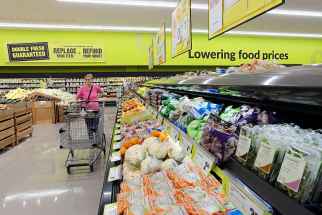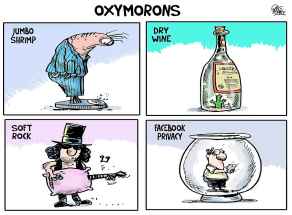Feds boost aid for canola farmers, Carr leads search for new buyers
Read this article for free:
or
Already have an account? Log in here »
To continue reading, please subscribe:
Monthly Digital Subscription
$0 for the first 4 weeks*
- Enjoy unlimited reading on winnipegfreepress.com
- Read the E-Edition, our digital replica newspaper
- Access News Break, our award-winning app
- Play interactive puzzles
*No charge for 4 weeks then price increases to the regular rate of $19.00 plus GST every four weeks. Offer available to new and qualified returning subscribers only. Cancel any time.
Monthly Digital Subscription
$4.75/week*
- Enjoy unlimited reading on winnipegfreepress.com
- Read the E-Edition, our digital replica newspaper
- Access News Break, our award-winning app
- Play interactive puzzles
*Billed as $19 plus GST every four weeks. Cancel any time.
To continue reading, please subscribe:
Add Free Press access to your Brandon Sun subscription for only an additional
$1 for the first 4 weeks*
*Your next subscription payment will increase by $1.00 and you will be charged $16.99 plus GST for four weeks. After four weeks, your payment will increase to $23.99 plus GST every four weeks.
Read unlimited articles for free today:
or
Already have an account? Log in here »
Hey there, time traveller!
This article was published 01/05/2019 (2420 days ago), so information in it may no longer be current.
OTTAWA — Jim Carr is Canada’s new canola salesman.
Two months into China’s ban on the crop, Manitoba’s only cabinet minister has been tasked with finding new markets for Canada’s canola.
The federal Liberals, who are trying to help distressed farmers export the crop to other countries, announced an aid package Wednesday.
“We are engaging the best we can in these circumstances,” Carr, the minister of international trade diversification, told the Free Press.
In about a month, Carr will lead a trade delegation to Japan and South Korea. He’s working with the agriculture industry to pinpoint other “high-potential countries” in Asia.
On March 1, China halted imports of canola from Winnipeg-based grain giant Richardson International, citing unspecified “dangerous pests.” The ban has ensnared other companies. Last year, Canada exported $2.7 billion in canola seed to China, and another $1 billion in oil and meal.
Exporters of other grains have complained China is delaying and scrutinizing imports of soybeans and peas.
The government has insisted on a science-based approach to the dispute, and refuses to speculate on ulterior motives.
Yet it is widely believed China has been retaliating over last December’s arrest of a senior Huawei Technologies executive in Vancouver.
Since early in the spat, Ottawa has asked China for evidence of pests, which did not show up in the samples Canadian inspectors collected before the crop was exported.

The Liberals asked three weeks ago to send a delegation of federal and provincial scientists to China, which has still not responded. Instead, scientists from the two countries have held video calls.
On Wednesday, Carr dismissed a call by Richardson to put a deadline on China to produce evidence, and retaliate if the country still hadn’t done so.
Loan boost was long requested
The Liberal government’s expansion of a loan program for farmers will meet the industry’s long-standing request to align its financing with large-scale agriculture.
The Liberal government’s expansion of a loan program for farmers will meet the industry’s long-standing request to align its financing with large-scale agriculture.
Agriculture Minister Marie-Claude Bibeau announced Wednesday that Ottawa is raising the cap on the Advance Payments Program to $1 million from $400,000, with the interest-free portion rising to $500,000 from $100,000.
Ottawa has extended the deadline of its loss-compensation program, AgriStability, by two months for canola farmers.
“Farming and agriculture has evolved with a lot higher financial demands,” said Bill Campbell, the head of Keystone Agricultural Producers, who praised the Liberals for extending both programs.
“This will not solve the trade issue. This is bridge financing. This will be able to get us to put the crop in and get us to a position where hopefully time allows the federal government to resolve this issue with China,” he said.
Meanwhile, the loan extension applies to all farmers, not just those who plant canola. Bibeau acknowledged the industry had made the request, saying it wasn’t in anticipation of China putting pressure on other sectors.
Bibeau also said she had not been informed about China disrupting pork imports. Reuters reported last week that pork exporters were facing delays, though it was likely due to Canadian firms incorrectly filling out paperwork.
“I think we have to understand what is a fair time for people acting in good faith,” the firm’s top lawyer, Jean-Marc Ruest, told a parliamentary committee on April 9.
Carr rejected that idea Wednesday.
“There is no deadline,” he said. “There are changes to the landscape that we will not be able to predict, and it’s a situation that we’re monitoring daily.”
A company spokesman said Richardson is no longer commenting on the canola issue.
Carr also said the Liberals weren’t yet at the point of launching a formal complaint to the World Trade Organization. “You never rule out other possibilities, but for now, this is the path ahead for us and our partners,” he said.
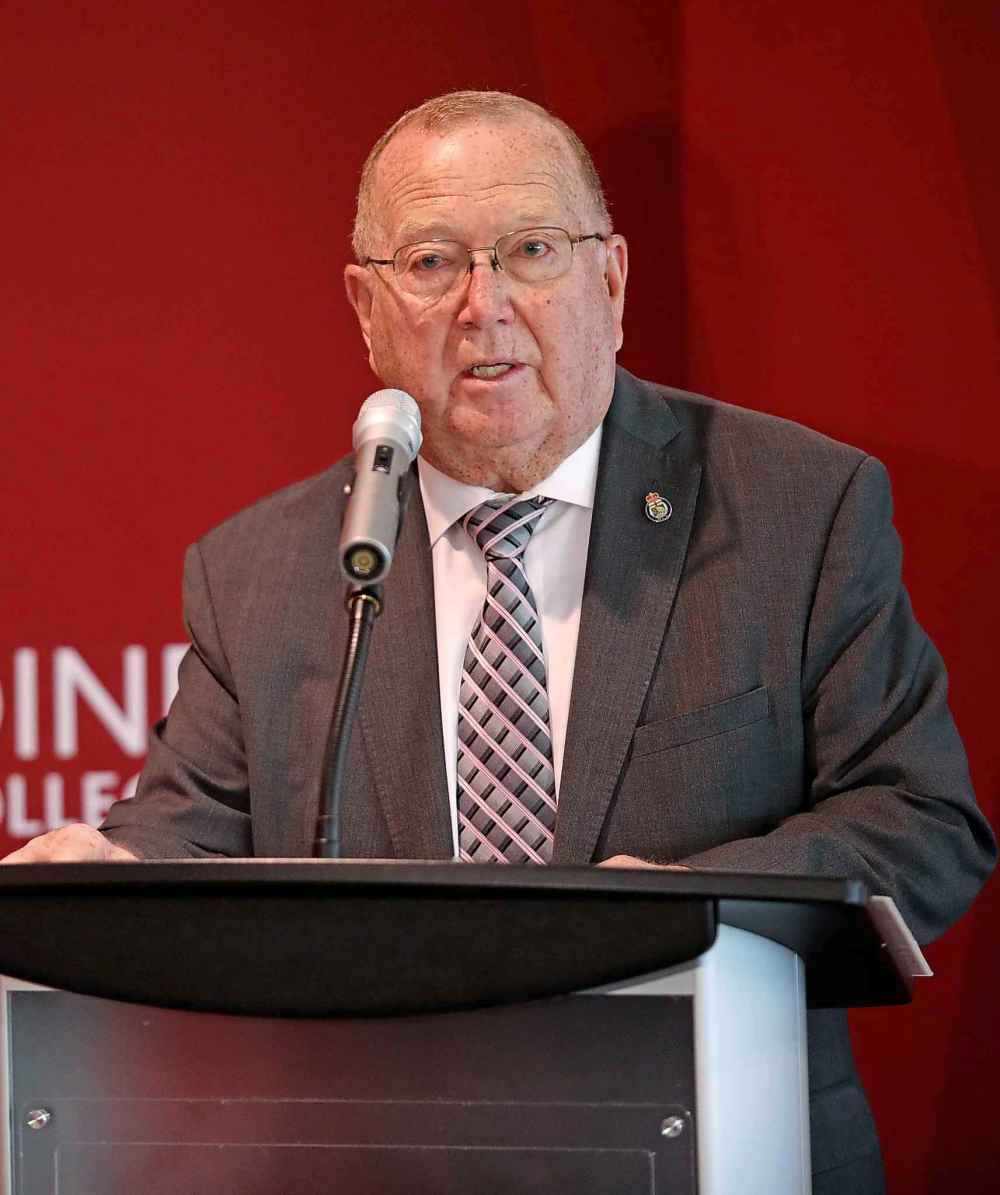
In Winnipeg, Manitoba’s agriculture minister Ralph Eichler said the Trudeau government hadn’t done enough to resolve the country’s trade issues with China.
“We should have been focusing on resuming trade with China,” he said in an interview. “Unfortunately, they have not got that job done.”
Eichler said he’s “very supportive” of Ottawa’s efforts to find new customers for canola, but said the Liberals’ role is to “build relationships” rather than extend loans.
“I don’t know how hard the federal government has pushed for a meeting with the Chinese government in order to get proof that our canola was full of pests,” he said. “Unfortunately, our farm families are the ones being impacted by this.”
Saskatchewan premier Scott Moe was more complimentary toward the Liberals, despite clashing with them on multiple issues. He praised the new funding, saying it “does buy us some breathing space.”
Industry groups and the provinces have been largely in lockstep with the Liberals since the spat was made public in March.
The federal Conservatives, as well as the Pallister government, have urged Ottawa to appoint a new ambassador to China. However, regional experts have doubted that this would help resolve the issue.
Carr has been working the phones to drum up exports to countries that already buy Canadian canola, like Mexico, Malaysia, Pakistan and the United Arab Emirates. He said he plans to raise the issue in multilateral meetings in Chile and France this spring.
Yet the world price of canola has dropped by about one-tenth.
Chuck Fossay, head of Manitoba Canola Growers, said his colleagues are kicking themselves for not diversifying their markets earlier on, with China having taken 40 per cent of their canola seed.
“It’s frustrating. Farmers are trying to figure it out,” he said while setting up his seeding equipment just north of Starbuck.
He said canola is a high-fertilizer crop, which makes it harder to substitute because other seeds don’t grow as well in the same soil.
“This is seeding time; it’s been two months. We were hoping that it would be settled by now.”
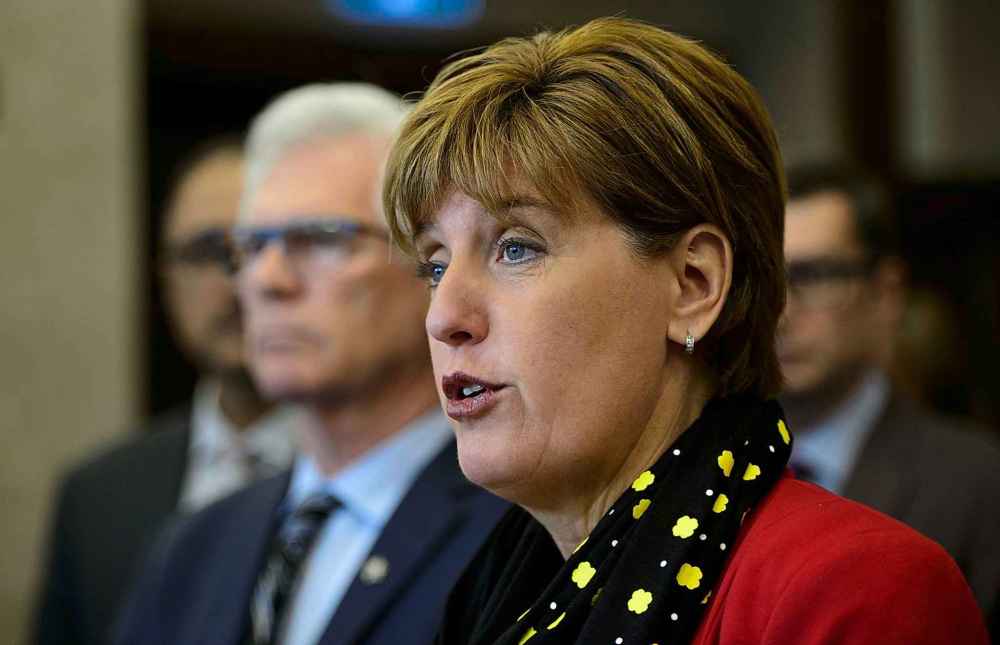
Agriculture Minister Marie-Claude Bibeau urged anguished farmers to seek help. “We know that farmers deal with many different pressures that can affect their mental health. Trade uncertainties can add to their stress,” she rold reporters.
In a regular report released last week, Statistics Canada estimated a 6.6 per cent drop in canola acerage nationally after surveying farmers during the month of March.
The head of Keystone Agricultural Producers said that drop may have deepend.
“In the current market price, I am going to need an exceptional yield to break even,” said Bill Campbell, who estimated that the price drop has already cost Manitoba farmers $160 million.
He was thankful for Wednesday’s announced support, but stressed it was “a bridge-financing loan” and not a handout.
“It has been two months, and I guess in agriculture we sometimes deal with issues of this magnitude somewhat quicker. But I understand this is a very touchy matter and I am not as familiar with politics.”
With files from Larry Kusch
dylan.robertson@freepress.mb.ca
History
Updated on Wednesday, May 1, 2019 10:09 PM CDT: Updates headline

